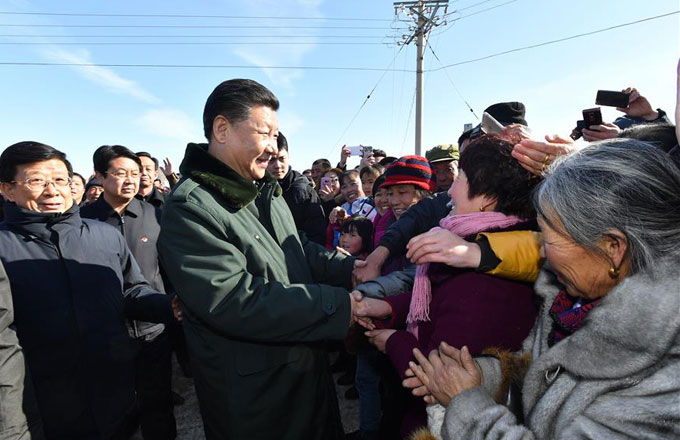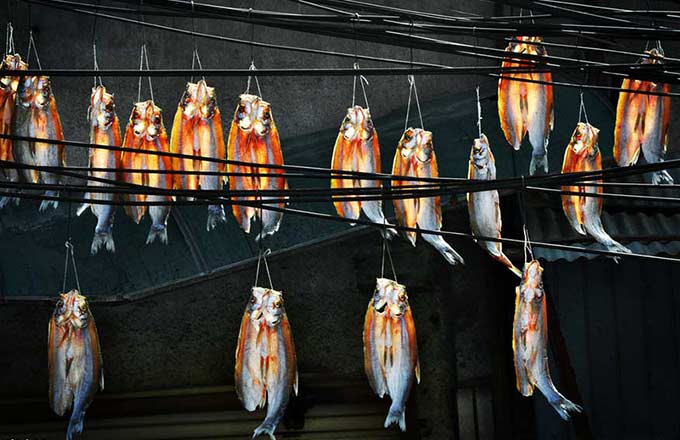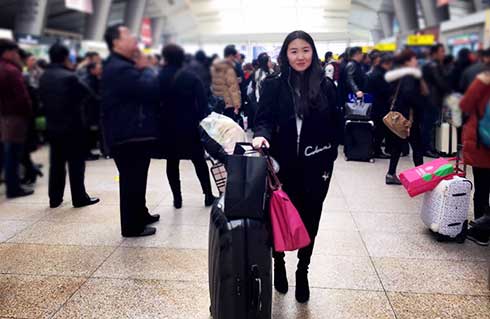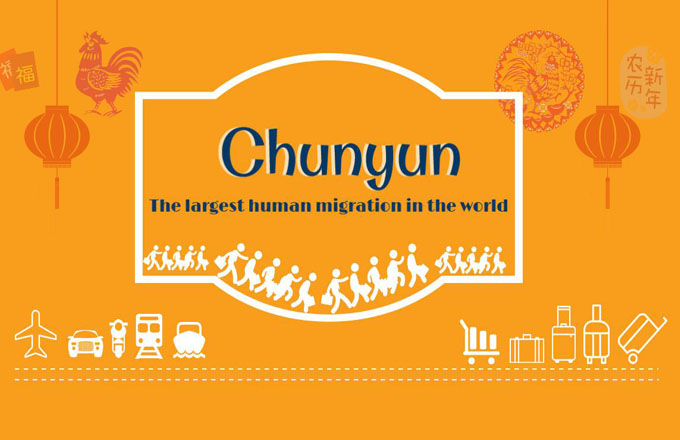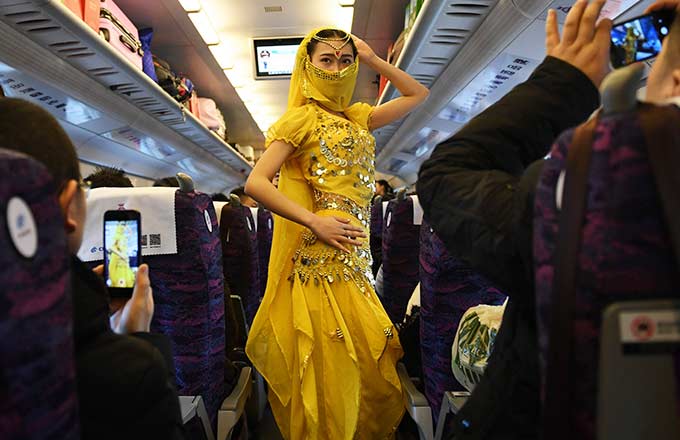Aviation staff ensure smooth ride for travellers
For millions of Chinese who return home every year for the Spring Festival, it means a chance to relax with their family, but for those who work in the aviation sector, the 40-day travel rush around the festival is their busiest time of the year.
"Normally, we hand out dumplings to our passengers," said Zhang Jiao (not her real name), a flight attendant with Air China.
According to the stewardess, she hardly goes home for the Chinese Lunar New Year, instead her companions over the festive period are insomnia and unusual eating hours. And she does not let this affect her work ethic -- she continues to pour passion into her job every day.
When asked about how Chunyun, the travel rush, has changed over the years, she said, "Now more and more migrant workers are choosing to fly home."
"Also more Chinese go abroad for the holiday," she noted.
Even though his feet are firmly on the group, Air China plane maintenance employee surnamed Qu said Chunyun is a busy time for him.
"Our maintenance work began before Chunyun. It is our job to monitor the planes 24 hours a day so that we can identify and address any problem early," he said.
Like Zhang, the experienced engineer commented that more people prefer to fly during the festive period, which means his workload has increased over the years.
"In the past, we only had few plane models that flew during Chunyun, like the Trident, the Il-62 and the Boeing-707. But now, more wide-body planes have been added, like Boeing 777-300 and Boeing 747-800," he said.
Data published by CAAC News showed the Chinese civil aviation sector will operate 470,000 flights during Chunyun, transporting passengers on 58.3 million trips, an increase of 10 percent over that of last year.
As of Jan. 11, an additional 22,595 domestic charted flights, 1,880 international charted flights, as well as 1,190 flights to Hong Kong, Taiwan and Macao had been added to the usual schedule to help cope with travel rush.
This increase of flights, however, means more work for staff.
An Air China pilot, surnamed Xie, said Chunyun "is very tiring with so much extra to do."
"During Chunyun, flights cannot be canceled, as all the passengers are desperate to go home -- so, we just work more. I am so proud to be helping so many people get back home safe and sound so that they can celebrate the Spring Festival," the pilot said.
An employee with Beijing Capital International Airport ground service, surnamed Bao, said, "During this time we have to deal with lots of unusual or special situations."
"For example, there were many flight delays a few days ago because of wind and snow. This meant that we had to update the flight information, manage baggage transfers, and get doctors or ambulances to passengers who fell ill," she said.
"During Chunyun, many parents return home with their kids and lots of the younger kids get stuck in the seats at the airport terminal -- we have to help extract them!" she said.
These individuals are some of the millions who have played a huge role in the overall development of China's aviation sector. By mid-December, more than 90 millions passengers had used Beijing Capital International Airport in 2016, second in the world for the seventh consecutive year.
Even with this achievement, the employees continue to work hard.
"What we want most is to offer our passengers the highest quality of security, efficiency and punctuality," Qu said.








